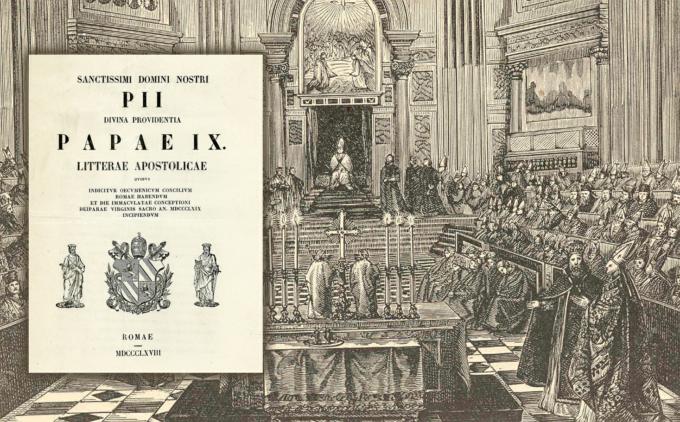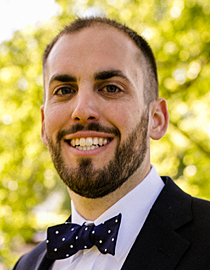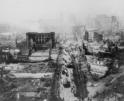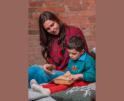
Culture
In the autumn of 1869, Catholic leaders began to arrive in Rome for the Council. Among them was Archbishop John J. Williams of Boston, one of 48 bishops from the United States in attendance ...

Lester
Dec. 8, 2019, marked 150 years since the opening session of the First Vatican Council (Vatican I). For 10 months, leaders of the Catholic Church from around the globe gathered in Rome, and over four public sessions and 89 general congregations debated contemporary issues and how the Church should address them. By the time it disbanded, on Sept. 1, 1870, two schemata, also known as constitutions, had been approved.
Pope Pius IX first revealed his intention to call for a general council of all Catholic leaders on Dec. 6, 1864. The following March, he appointed a Central Preparation Commission, and later five additional commissions on Faith and Dogma, Church-State Relations, Eastern Churches and Missions, Ecclesiastical Discipline and Religious Orders. The members of each were primarily members of the Roman Curia, tasked with preparing draft schemata to be debated when the council convened.
The commissions did not begin their work in earnest until the summer of 1867, and on Sept. 27 the Faith and Dogma commission adopted as its primary guide Pius IX's "Quanta cura" and "Syllabus of Errors," dating to Dec. 8, 1864, which listed heresies in the modern Church, embodied by those favoring modernism and a change in Catholic traditions.
While readers more familiar with the Second Vatican Council may recognize this method of pre-conciliar planning by committee, at the time it was unprecedented, both in the advance drafting of agendas and schemata and the use of theologians to accomplish it.
On June 29, 1867, the Solemnity of Sts. Peter and Paul, Pius IX officially announced Vatican I would convene, and confirmed this in writing ("Aeterni Patris") exactly one year later. In addition to Catholic leadership, copies were issued to Eastern Patriarchs and Protestant groups, though none were invited to send representatives as participants or observers, nor were secular authorities.
In the autumn of 1869, Catholic leaders began to arrive in Rome for the Council. Among them was Archbishop John J. Williams of Boston, one of 48 bishops from the United States in attendance, accompanied by Father Alexander Sherwood Healy.
Before departing, Archbishop Williams spoke at the Cathedral of the Holy Cross on Oct. 17, 1869 (published in The Pilot, Oct. 30, 1869, page 6). He reveals his conservative nature, speaking to those who called for the Church to progress that "if by progress you mean change, then it is impossible to progress. As God gave us the truth, so we continue to teach it. As it was when Christ taught upon earth, so it is now. If we could change this truth, it would be truth no longer, it would be worthless, it would be of no value. None of the fixed principles can be changed. It is the material world only that changes."
He argues that we cannot change the truth, much like we cannot change the air we breathe or the water we drink, as they are truths of natural science. The article comments that "towards the conclusion of this address, the people (in attendance) were very much affected, and many were moved to tears. The Bishop himself seemed to feel strongly the pain of parting with his people ..."
Leaving his vicar general, Father Patrick F. Lyndon, in charge of the archdiocese, Archbishop Williams departed with Father Healy on Oct. 19.
Editor's note: Next week's edition of The Pilot will feature the second part of this column, featuring Archbishop William's diary of Vatican I held by the archive and a discussion of the council's proceedings and outcome.
- Thomas Lester is the archivist of the Archdiocese of Boston.
Recent articles in the Culture & Events section
-
Scripture Reflection for April 28, 2024, Fifth Sunday of EasterDeacon Greg Kandra
-
Boston and the nation respond to the San Francisco Earthquake of 1906Thomas Lester
-
See you in the storyLaura Kelly Fanucci
-
'Dignitas' and the mediaRussell Shaw
-
Scripture Reflection for April 14, 2024, Third Sunday of EasterDeacon Greg Kandra

















